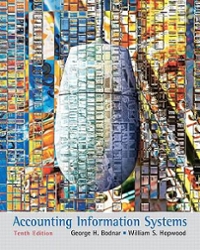Question
1.This scenario is based on the example of Patrick and Alice presented in Topic 3.3. Patrick owns a string of retail stores selling ladies' clothing
1.This scenario is based on the example of Patrick and Alice presented in Topic 3.3.
Patrick owns a string of retail stores selling ladies' clothing in Toronto. He has been very successful at marketing clothes to women in their twenties and early thirties. Patrick wants to expand into other parts of Ontario, so he has decided to open a store in Huntsville, a small town several hours' drive north of Toronto in what is locally known as "cottage country."
Patrick needs someone to act in his place at the Huntsville store because he cannot be there and in his Toronto stores at the same time. Moreover, he also wants someone familiar with the "cottage country" market. He needs a locally based manager to work full time at the store.
The most experienced job candidate in the targeted demographic market is Alice, so Patrick hires her. He decides that because Alice has the requisite local knowledge, she should hire and manage staff for the Huntsville store, arrange publicity and advertising, deal with the local landlord and generally handle day-to-day operations. Patrick will only occasionally be able to come to the Huntsville store. Alice has thus been given broad discretionary powers over the Huntsville store's operation.
The following are three independent situations that arose after Patrick hired Alice as the manager of the Huntsville store.
Situation #1
Patrick put in place a sales incentive scheme that provides a 5% of net purchase price bonus both to the sales clerk who sells an item and to the manager, Alice. Hence, the net cost of the promotion is 10% of the net purchase price. Bonuses are awarded at the end of each quarter.
The incentive scheme works well at first, resulting in increased sales and profits during the first quarter. However, in the second quarter, Patrick notes that, while bonus payments continue to rise, profits are dropping, due to increasing customer returns for refunds from merchandise originally purchased in the first quarter.
Patrick suspects, but has no proof, that the Huntsville staff were encouraging customers to hold off returns until after the first quarter was completed. He now has to decide what to do bout the second-quarter payments to sales staff and the manager, as well as about the bonus plan for the next two quarters.
What should Patrick do?
Situation #2
Alice recommended to Patrick that the store should support a local initiative to build goodwill in the community. Patrick thinks this is a great idea and suggests that support should go to the local beauty pageant. Alice tells him that this would be a bad idea because it would alienate the substantial base of shoppers who, like herself, see beauty pageants as old-fashioned and demeaning. She suggests that the store support an outdoor adventure program for teenage girls. Patrick tells Alice that he thinks this is a bad idea because it does not promote the kind of "feminine look" that has made his Toronto stores so popular.
A week after her conversation with Patrick about supporting a local initiative, Alice decides that the store will make a charitable contribution to the outdoor adventure program for teenage girls rather than to the beauty pageant.
What, if anything, should Patrick do?
Situation #3
Patrick has announced a policy at all his stores, including the Huntsville store, dictating that merchandise in good condition can be returned for a full refund within 30 days of purchase. However, Patrick has privately told managers that when merchandise is returned for a refund, they should use any reason they can for finding customer-caused "defects" in the merchandise, thus making it ineligible for a refund.
Alice tells Patrick that this seems deceptive and could potentially alienate customers. Patrick's response is that his experience in the Toronto stores tells him that (a) if the manager is aggressive enough about finding faults in the merchandise, most customers will give up on seeking a refund, (b) some will think that they actually did damage the merchandise and (c) the great majority of customers will never try to return the merchandise anyway. Patrick defends what he is doing as "smart marketing" and "necessary to keep up with competitors while keeping costs under control."
What should Alice do?
Required:
For each of the three independent situations, a memo ( 800 word) to the appropriate party (Patrick or Alice) that identifies and discusses the ethical issue(s) associated with the situation. Provide a recommendation on what Patrick or Alice should do in each situation.
Step by Step Solution
There are 3 Steps involved in it
Step: 1

Get Instant Access to Expert-Tailored Solutions
See step-by-step solutions with expert insights and AI powered tools for academic success
Step: 2

Step: 3

Ace Your Homework with AI
Get the answers you need in no time with our AI-driven, step-by-step assistance
Get Started


